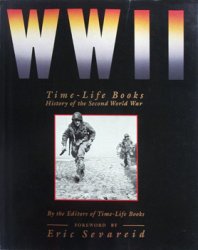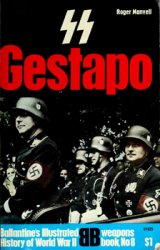New charters did not solve the problems of Virginia's European colonizers, who continued for many years to die in great numbers, of disease and malnutrition. In the spring of 1623, the following letter was written from Martin's Hundred, a plantation about ten miles upriver from Jamestown. Its author (though not necessarily the person who actually wrote out the words) was Richard Frethorne, who had been sold into servitude by his own parents. Except for this letter, no shred of evidence about the life of Frethorne has survived. The letter is the lament of one of the many thousands of anonymous victims, European and Native American, of the often-murderous process of "transplantation." Richard Frethorne's Virginia is a place where desperate men steal each other's clothes, and where people cry out that they would give up their limbs—just to be back in England, even if they had to become beggars.
Loving and kind father and mother,
My most humble duty remembered to you, hoping in God of your good health, as I myself at the making hereof.
This is to let you understand that I, your child, am in a most heavy case, by reason of the nature of the country, [which] is such that it causeth me much sickness, as the scurvy and the bloody flux [probably dysentery], and diverse other diseases, which make the body very poor and weak. And when we are sick, there is nothing to comfort us. For since I came out of the ship, I never ate anything but peas and loblollie (that is, water gruel). As for deer or venison, I never saw any since I came into this land. There is indeed some fowl, but we are not allowed to go and get it, but must work hard both early and late for a mess of water gruel and a mouthful of bread and beef. A mouthful of bread, for a penny loaf must serve four men, which is most pitiful, if you did know as much as 1, when people cry out day and night, O that they were in England without their limbs, and would not care to lose any limbs to be in England, yea though they beg from door to door.
For we live in fear of the enemy every hour, yet we have had a combat with them on the Sunday before Shrovetide [Shrove Tuesday is the day before Ash Wednesday, of the week leading to Easter Sunday]. And we took two alive and made slaves of them. But it was by policy, for we are in great danger, for our plantation is very weak, by reason of death and sickness of our company. For we came but twenty, for the merchants [for the men who had bought the contracts of indenture], and they are half dead just. And we look every hour when two or more should go. Yet there came some other men to live with us, of which there is but one alive, and our lieutenant is dead, and his father, and his brother, and there was some five or six of last year's twenty, of which there is but three left, so that we are fain [we need] to get other men to plant with us, and yet we are but thirty-two to fight against three thousand if they should come. And the nighest help that we have is ten miles of us. And when the rogues overcame this place last, they slew eighty persons.
And I have nothing to comfort me, nor is there nothing to be gotten here but sickness and death, except [unless] one had money to lay out in some things for profit. But I have nothing at all, no, not a shirt on my back, but two rags, nor no clothes, but one poor suit, nor but one pair of shoes, but one pair of stockings, but one cap. My cloak was stolen by one of my own fellows, and to his dying hour he would not tell me what he did with it. But some of my fellows saw him have butter and beef out of a ship, which my cloak I [don't] doubt paid for. So that I have not a penny, nor a penny worth to help me to either spice, or sugar, or strong waters [alcohol, probably rum], without the which one cannot live here. For as strong beer in England doth fatten and strengthen thee, so water doth wash and weaken here, only keeps life and soul together.
For I am not half a quarter as strong as I was in England, and all is for want of victuals, for I do protest unto you that I have eaten more in a day at home than I have allowed me here for a week. You have given more than my day's allowance to a beggar at the door.
And, if Mr. Jackson had not relieved me, I should be in a poor case. But he like and father and she like a loving mother doth still help me, for when we go up to James Town, that is ten miles of us, there lie all the ships that come to the land, and there they must deliver their goods. And when we went up to town as it may be on Monday at noon, and come there by night, then load the next day by noon, and go home in the afternoon, and unload, and then away again in the night, and be up about midnight. Then if it rained or blowed never so hard, we must lie in the boat in the water, and having nothing but a little bread, for when we go in the boat we have a loaf allowed to two men, and it is all [even] if we stayed there two days, which is hard. And we must lie all that while in the boat. But Goodman Jackson pitied me and made me a cabin to lie in always when I come up. . . . Oh, they be very godly folks, and love me very well, and will do anything for me. And he much marveled that you would send me a servant to the company. He said I had been better knocked on the head, and indeed I find it now to my grief and misery, and say that if you love me you will redeem me suddenly, for which I do entreat and beg. And if you cannot get the merchant to redeem me for some little money, then for God's sake get a gathering, or entreat some folks to lay out some little sum of money, in meals, and cheese and butter, and beef. . .
Wherefore for God's sake pity me. I pray you to remember my love to all my friends and kindred. I hope all my brothers and sisters are in good health, and as for my part, I have set down my resolution that certainly will be: that the answer to this letter will be life or death to me.




 World History
World History









